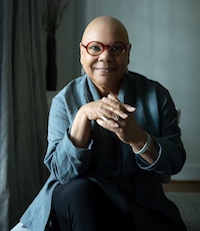Buddhist Recovery Academy > Teachings
Buddhist Recovery Network - Teachings
BRN Academy Schedule
BRN Academy Videos
BRN Academy Teachers
BRN Academy Teachings
Podcast
Enroll in the BRN Academy
 Vimalasara Mason-John - February 3rd, 2019 Teaching
Vimalasara Mason-John - February 3rd, 2019 Teaching
Coming Home To The Body with Breath
Imagine not being able to find your way home to your loved one’s, to your friends and family. Imagine how traumatic this would be. And this is the same trauma we experience when we have split from our body and can not find our way back into the body. We have to find our way back home to our body if we want freedom from the prison of our minds.
The Buddha was teaching us to breathe through the body, feelings, mental formation and all mind objects with calm. The anapanasati meditation, the mindfulness of breathing is teaching us to come back to the body.
The journey of wisdom is learning to find our way back to the body. But some of us have lost our way home because our bodies were violated in childhood. To protect ourselves we made sure nobody was at home in our body. We switched all feeling off.
If we are able to find our way back home. Turn all the
feelings back on in the body. We will learn to turn towards our direct experience unfolding in every moment.
In Vipassana meditation we are saying come back to the body, come back to the breathing, inhabit your body, and be in direct experience with whatever is arising in the now.
The body is the home for all of us. It's where we live all our lives, and if we are not at peace in our body, we will not be at peace in any other areas of our lives. We have to learn to befriend our body, and not treat it like an enemy. And know it is safe to have our feelings now.
We come home to the body with breath. (This is an edited version from Vimalasara's new course for Insight Timer launching September 10th)
Three tips for practice
- Breathe
- Do nothing when discomfort, comfort or neutral sensations arise in the body or mind
- Be kind and compassionate to yourself by remembering to pause
Vimalasara (Valerie) Mason-John is the current President of BRN. She was the co-founder and guiding teacher of Healing and Insight, an online faculty that explored the sharp edges of suffering. Award-winning author of 8 books, she is the co-founder and co-author of Eight Step Recovery: Using The Buddha's Teachings to Overcome Addiction, with 8 step meetings in 3 continents. And she is also the co-founder of Mindfulness-Based Addiction Recovery. Vimalasara is a senior teacher in the Triratna Order and Community.

Ruth King — September 2nd, 2018 Teaching
Mindful of Race
"Racism remains one of the most rooted and painful impasses of our time. It is fed through unawareness and the misuse of power. Embedded in racism is the skeletal shape of all oppressions. To understand the dynamics of racism and the flesh we put on its bones is to also understand other forms of oppression and our relationship to differences, divisions, and diversity. Too many of us want racial suffering to go away without first being touched by it or caring for it. Yet recognizing how we have been conditioned to think and react is at the heart of both racial distress and racial healing. In this introductory talk, we discover how our inner life is reflected in the world through the Buddha’s teachings on Ultimate and Relative Reality and Distortion of Mind, and the three truths we must remember but often forget. "

Steven Tierney, Ed.D. — August 5th, 2018 Teaching
Suffering and Happiness – Both are Present, Embrace Them.
"Living Happily with things as they are (Drishta dharma sukha viharin) encourages an ancient Buddhist teaching. Those of us who have lived with addiction, struggled with recovery and found our common bonds: trauma and toxic shame, may find that teaching simplistic or even dismissive.
As Buddhists, we know that suffering is part of life. We accept that. Then, right in the center of the Big Book of alcoholics anonymous (p 132) is a wonderful sentence: “We absolutely insist on enjoying life…we are not a glum lot”!
How do we create a life that includes both suffering and happiness? Letting go!
Gil Fronsdal writes: “Renunciation is one of the most beneficial, empowering, and freeing practices of Buddhism. As its purpose is to heighten the best qualities of our hearts and minds, renunciation is not meant to diminish our lives but rather to enhance them. Abstaining from intoxicating drinks and drugs—the fifth ethical precept—is an important Buddhist practice.
So, we welcome suffering and delusion when they arise, we notice them, but we do not cling. We let them go and we acknowledge that happiness is also present.
Not one, not two."


 Copyright © 2008-2024 Buddhist Recovery Network
Copyright © 2008-2024 Buddhist Recovery Network